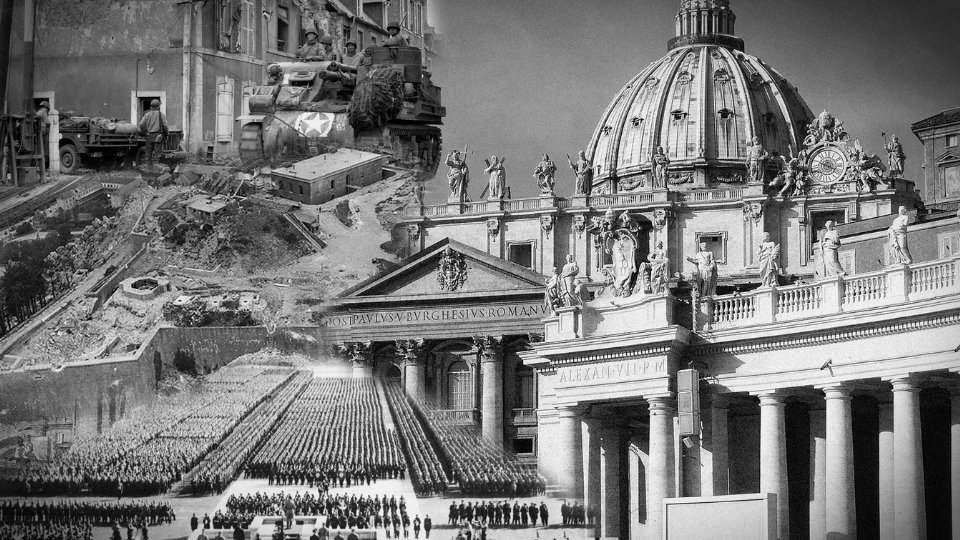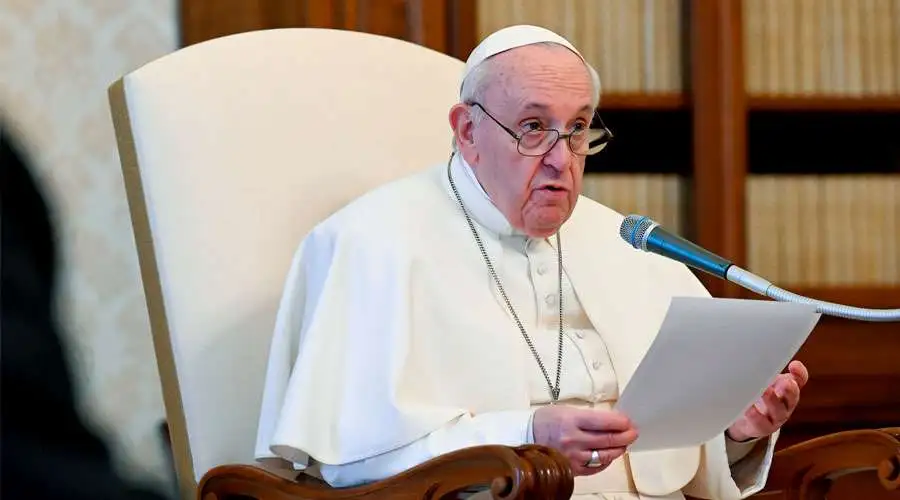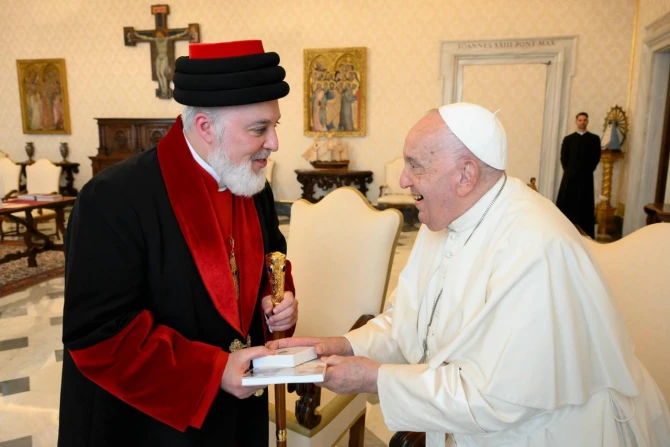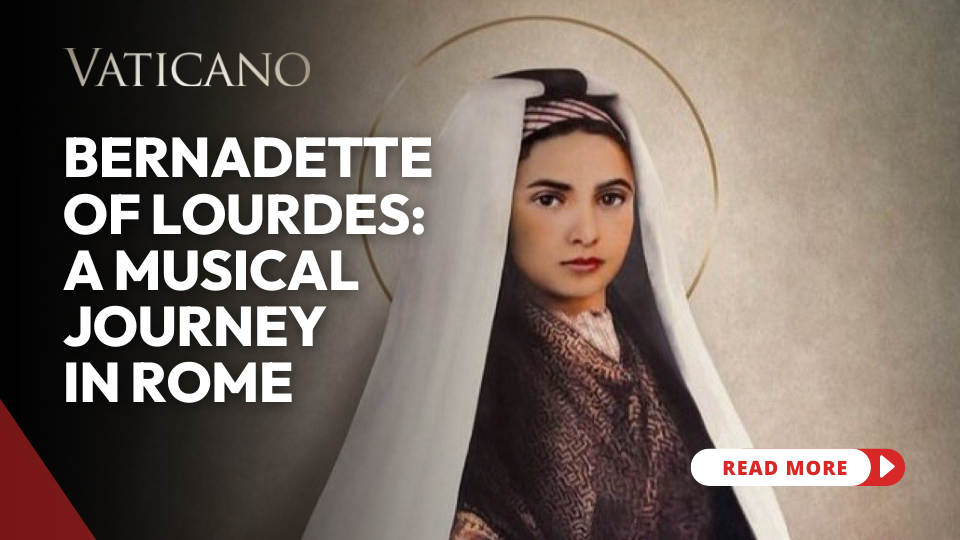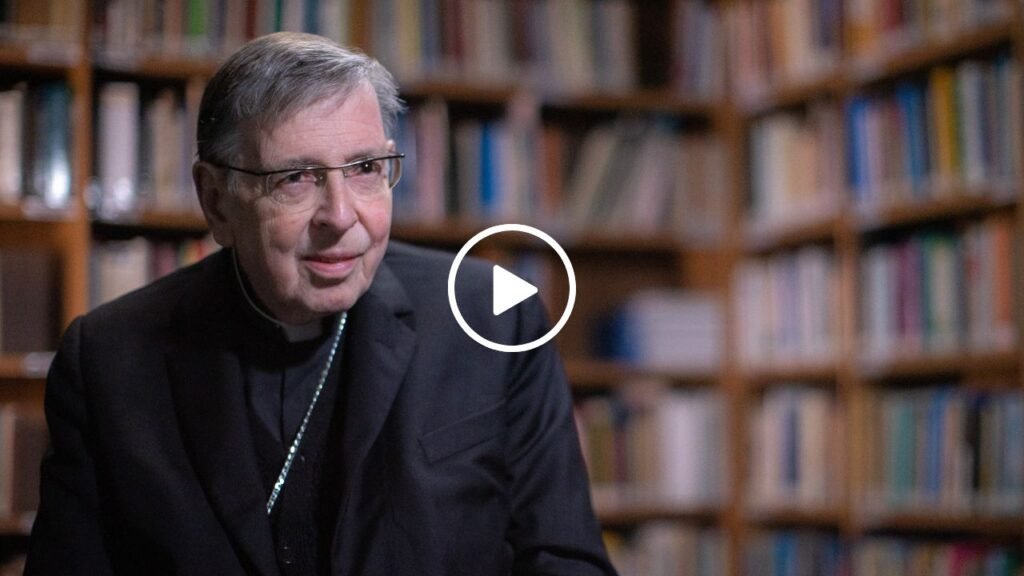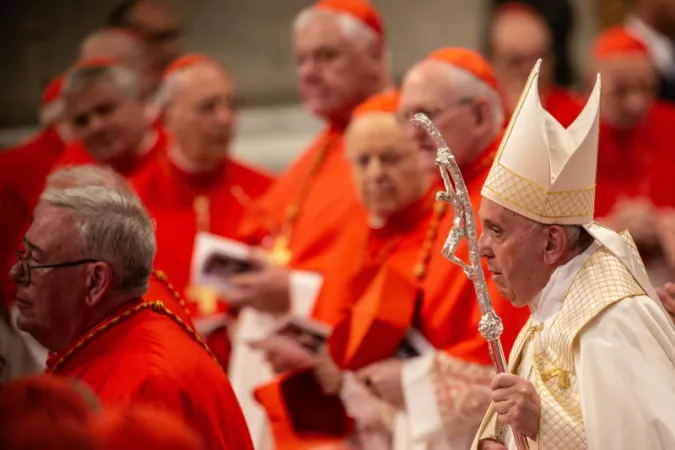The last day of war.
SIGN UP FOR OUR NEWSLETTER HERE
80 years ago, on May 8th, World War II ended.
Germany capitulated; the allied forces had won. The role of the Catholic Church during the terrible years of Nazi reign has remained a topic of debate until this day.
Directly after the war, the Catholic Church condemned the atrocities committed by the German aggressors but also mentioned war crimes of the Allied forces.
At first, the Catholic Church was praised for helping many Jews escape the genocide inflicted by Hitler and mourned its own clergy and lay members slaughtered in the concentration camps such as Saint Maximilian Kolbe or Franz Jaegerstaetter.
The people still remembered the thunderous words of Bishop Von Galen, the lion of Muenster – as he was called. He led protests against the euthanasia program of the nazi regime, denounced the gestapo – the dangerous secret police —, and stood up against the persecution of the Church.
Only later, scholars started to question if the Church was really a victim. Many baptized Catholics were part of the nazi regime. Why were they not excommunicated? What did Pope Pius XII really know about the holocaust and why did he not speak up?
An interview with Father Maxim Baz, Professor of Theology at the Angelicum, adds clarity.
“He was criticized for being too prudent. But he explains that his prudence was precisely aimed at saving, you know, those that were most vulnerable, because we know now the psychology that was going off, of those in charge of Germany back then, and we know that they would have been, summary shootings, disappearances, people would have been shot in the street, just as, you know, a retaliation for what the Pope said.”
“What you’re saying is there were actually also many Jews saved by the Church?”
“Absolutely, yes. There is a mischaracterization of the role of Pius XII. If you want probably a more accurate reading of who he was, well, perhaps we should look at all the elegies or the words of condolences that were offered by notable individuals at the moment of his death, the prime Minister, Golda Meir, who really made an eloquent act of appreciation for all his interventions during the Second World War, and many others. You also have the Chief Rabbi of Jerusalem.”
Father Maxim Baz is a Lebanese priest who works for the Order of the Holy Sepulcher in Rome. He wrote his dissertation at the Pontifical University of Saint Thomas Aquinas — Angelicum focusing on the attitudes of modern popes towards war. Pope Pius XII, who led the Church through World War II after serving for many years as nuncio in Germany was of special interest to him.
“He knew in a very capillary way, he had a very granular image of the growth of the National Socialist Party. We have lots of proof of many diplomatic notes that he wrote in protest, for the increasing power grab of this party back then. And, very early on, he was aware of what was happening.”
There is a particular place in the shadow of St. Peter’s Basilica, which has a long Germanic tradition. During World War II, the Teutonic graveyard became a hotbed for church diplomacy and an eventual saving grace for thousands.
Mons. Stefan Heid, Rector of the Pontifical Institute of Christian Archaeology, is a well-known German historian who works and lives in the Campo Santo Teutonico. He notes:
“Pope Pius XII – this is a truly controversial matter. His silence has been regularly brought up, and it is objectively true that in his public statements he did not mention the systematic mass extermination of the Jews. We also know about his reasons: He did not want to risk the lives of the Jews even more by making such an open statement.”
Mons. Heid adds, “Therefore, it will always remain an open question, whether what he did was too little. And it can undoubtedly be seen that way today. It was an absolutely unique situation that no one had ever faced before.”
Pius XII also plays a role in a now famous story that took place inside the Vatican. An Irish priest who lived at Campo Santo Teutonico, the German graveyard, saved thousands of Jewish refugees fleeing the nazi concentration camps and certain death.
Mons. O’Flaherty’s inspiring testimony was enacted by Hollywood star Gregory Peck in the movie “The Scarlet and the Black.”
Mons. Heid explains, “When it came to humanitarian matters, the protection of the Jews, the escaped prisoners of war, and those politically at risk, everyone was clearly on O’Flaherty’s side. He built a large network in the city of Rome. From his room here at the Campo Santo Teutonico, he organized everything.”
“The German graveyard in the Vatican did not turn into the last repose for the refugees of the Nazi regime but marked a new start for their lives?”
Mons. Heid confirms this.
“Do we know if Pope Pius XII was informed of Mons. O’Flaherty’s help?”
“It can certainly be assumed. Even if there is not a single document about it, the Church’s internal structure is strictly hierarchical, meaning the Pope was aware of every movement.”
Mons. O’Flaherty’s story is far from unique. Many churches and parishes around Rome are known to have offered safe haven for those fleeing the Nazi regime.
“[The Pope] did, however, do an enormous amount. I don’t know if any other Pope would have done as much, because there are indeed Popes in history who were fearful, and Pius was not one of them. He even received the resistance fighters in the Apostolic Palace. Which Pope would do that today?”
Adapted by Jacob Stein
LIVE UPDATES: Pope Leo XIV’s first days
Produced by Andreas Thonhauser, Andrea Manna; Camera by Fabio Gonnella, Alberto Basile; Video Edited by Ilaria Chimenti

